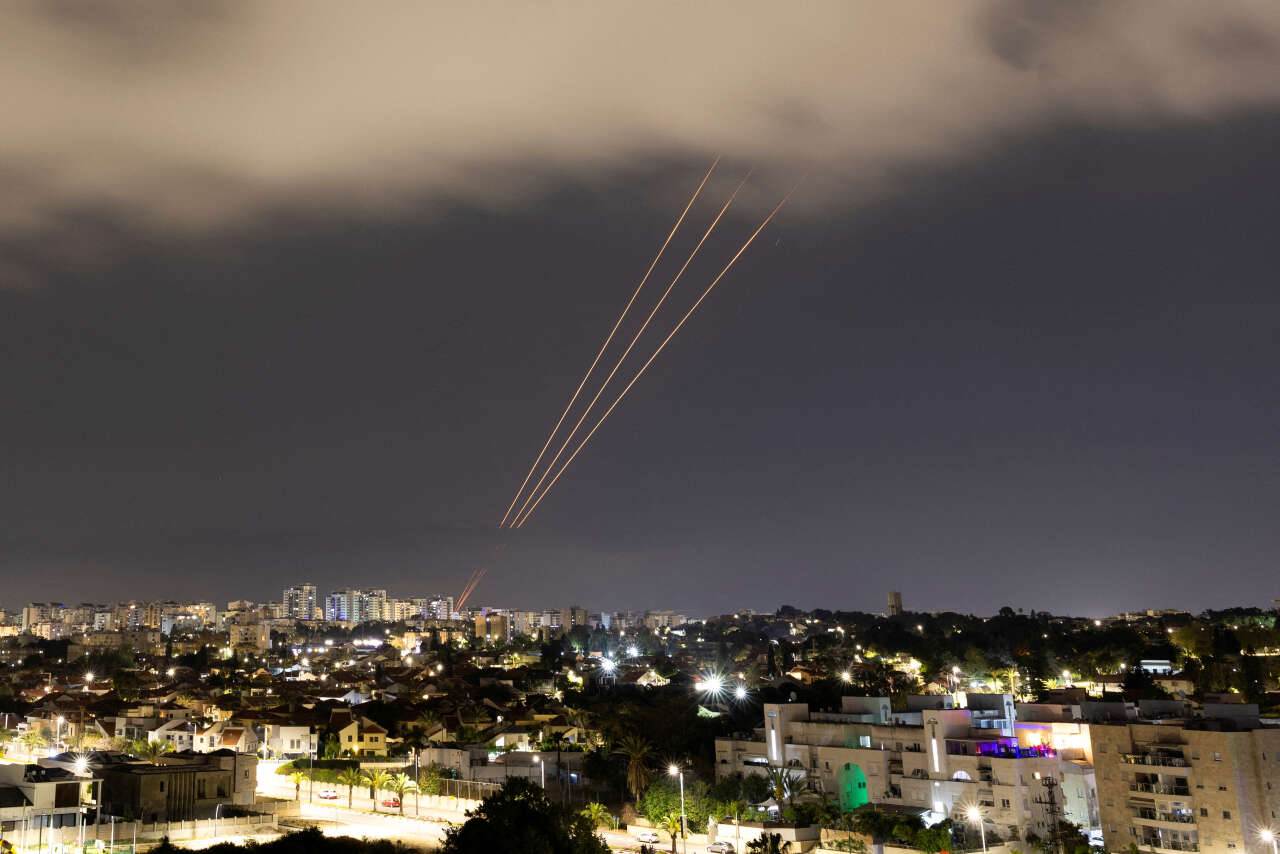Middle East: the threat of escalating violence looms large

Following an attack on the Iranian embassy in Damascus in early April, Israel was targeted by Iranian retaliation on the night of Saturday April 13 to Sunday April 14. Tensions escalated, prompting international reactions and fears of potential escalation.
Following Washington’s warnings to create a humanitarian corridor in the Gaza Strip, Israel struck the Iranian embassy in Damascus, Syria, on April 1, killing 16 people. Iran was quick to retaliate. On the night of Saturday April 13 to Sunday April 14, Iran launched a drone and missile attack on the Hebrew state.
Tensions had been running high in the days leading up to the attack. On Saturday April 13, Israel announced that schools would be closed on Sunday, the first day of the week in Israel, for security reasons. Israel also closed its airspace at 00:30.
Joe Biden cut short his weekend at his family home for similar reasons. The President’s team announced that he was returning “to the White House” on Saturday afternoon “to consult with his national security team on events in the Middle East”.
The situation was further aggravated on Saturday when Iran seized the container ship MSC Aries near the Strait of Hormuz, one of the busiest shipping lanes in the world. However, the Iranian authorities did not specify whether this operation was linked to their recent threats of retaliation.

“We strongly condemn Iran’s seizure of the British-owned, Portuguese-flagged MSC Aries in international waters. We call on Iran to immediately release this vessel and its crew, made up of Indians, Filipinos, Pakistanis, Russians and Estonians,” said US National Security Council spokeswoman Adrienne Watson.
Self-defence attack
Until now, Iran, which does not recognize the existence of Israel, has relied on allied terrorist groups – Hamas, Lebanese Hezbollah, even the Houthi rebels in Yemen – to target its adversaries by proxy and avoid retaliation. It’s a significant change of strategy. In two messages published overnight on X, Iran invoked Article 51 of the UN Charter on “self-defense”. Its mission to the UN criticizes “the inaction and silence of the Security Council, coupled with its inability to condemn the aggressions of the Israeli regime”.
Iran launched more than 300 drones and missiles at Israel on the night of Saturday April 13 to Sunday April 14, 2024, the Islamic Republic’s first direct attack on Israeli territory. According to the Israeli authorities, the attack involved three types of missile: Shahed-136 drones, cruise missiles and ballistic missiles. Some 170 drones, 30 cruise missiles and 120 ballistic missiles were deployed in the attack.

At the same time, Lebanese Hezbollah and Yemeni Houthi rebels carried out anti-Israeli attacks. Hezbollah fired two rocket salvos in the space of a few hours at the Israeli-occupied Golan Heights, while the Houthis launched drones in the direction of Israeli territory.
Shortly before 02:00 Sunday morning, Jerusalem was rocked by a series of detonations, while images of red and yellow lights illuminating the sky were shared on social networks.
The Iranian attack, dubbed “Honest Promise”, was confirmed by the Irna agency at around 03:20 Sunday. The Revolutionary Guards claimed responsibility for the operation, saying they had aimed at specific targets. Although Iranian missiles reached Israeli territory, they caused only minor damage and no casualties. US forces in the region assisted Israel by shooting down most of the Iranian drones and missiles.
Victory according to Iran
The Iranians claim that the attack was a success, while the Israelis explain that it was thwarted. No drone or missile “penetrated Israeli territory”, assured the army spokesman, claiming to have intercepted “99% of the shots”. “Together with the United States and other partners, we succeeded in defending the territory of the State of Israel”, added Defense Minister Yoav Gallan.
Teheran explains that it hit two strategic Israeli sites. The Iranian authorities claim to have inflicted “serious damage” and “disabled” two Israeli army sites: an intelligence center and the air base from which Tsahal planes allegedly took off to strike Iranian interests on April 1. However, this damage seems insufficient to qualify this action as a military success.

Iranian President Ebrahim Raissi, however, threatened Israel with a “stronger” reaction. “The punishment of the aggressor has come true”, he declared, adding that “if the Zionist regime or its supporters” were “to demonstrate reckless behavior, they will receive a decisive response”.
Instant international reaction
On the night of the attack, the regional reaction was immediate, with Jordan, Lebanon and Iraq closing their airspace, and Egypt’s air defences being put on high alert. Saudi Arabia called for restraint on all sides.
Once the retaliation was complete, Teheran said it would leave it at that. “The affair can be considered closed”, while a high-ranking officer asserted that his country had “no intention of continuing this operation”.
The international community has stepped up its meetings in recent days to analyze the situation. In addition to the United Nations, the G7 leaders (Canada, France, Germany, Italy, Japan, United Kingdom and United States) are scheduled to meet by videoconference. The British government has also announced that it will send military reinforcements to the Middle East to intercept any air strikes if necessary, while Paris and Berlin have condemned the Iranian attack, expressing concern about a regional escalation. Israeli Prime Minister Benjamin Netanyahu spoke with US President Joe Biden, who reaffirmed America’s unwavering support for Israel.
No escalation after the attack?
President Biden himself said that the US had supported Israel in intercepting most of the fire with aircraft and destroyers deployed in the Middle East the previous week. According to U.S. sources, however, he warned Prime Minister Benjamin Netanyahu that the U.S. would oppose any Israeli attack on Iran. For him, “Israel has won” and “escalation is out of the question now”.

“Iran clearly showed restraint in this type of attack, knowing full well that Israel had all the means to counter it. There was no desire on Iran’s part to escalate, and it has no interest in doing so,” says Bertrand Badie, professor emeritus at Sciences Po and a specialist in international relations.
However, U.S. officials have expressed concern to NBC about Israel’s impulsive reaction to Iran, without assessing the consequences. Indeed, according to the New York Times, an Israeli source mentioned that Israel would coordinate its response to the Iranian attack with its allies.
Meanwhile, the Israeli Foreign Ministry has sent out directives to embassies around the world, calling the Iranian attack an “unprecedented event” and calling for international statements condemning Iran’s action.
Read also>THE MIDDLE EAST FLARES UP AGAIN
Featured photo : © Press
Hugues Reydellet est un jeune journaliste passionné, dont les sujets de prédilection sont l'économie, la culture, la gastronomie, mais aussi l'automobile et le sport. Avec une plume acérée et une curiosité insatiable, Hugues est constamment à la recherche de nouvelles informations brûlantes à rapporter.






